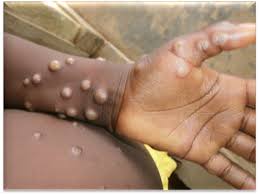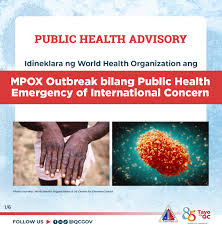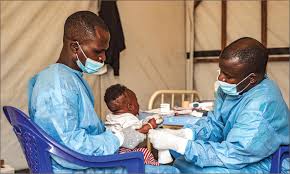Mpox Outbreak in Ghana Reaches 107

Current Outbreak Status in Ghana
Ghana’s Mpox situation continues to evolve, with the Ghana Health Service (GHS) confirming 107 cases as of June 18, 2025. The recent detection of nine new infections has prompted health authorities to strengthen containment measures across affected regions. Cases have now been reported in ten of Ghana’s sixteen regions, with several patients currently receiving specialized hospital treatment.

Government and Health Sector Response
The GHS has implemented a multi-pronged approach to combat the outbreak, including enhanced nationwide surveillance systems. These measures enable rapid detection of new cases and prompt contact tracing of exposed individuals. Health officials have established emergency response protocols to quickly isolate and treat suspected cases while preventing further community transmission.
Public Education and Awareness Campaigns
Intensive public education initiatives are underway to inform citizens about Mpox symptoms and prevention methods. The GHS is working with community leaders and healthcare providers to distribute accurate information about identifying early warning signs. These efforts emphasize the importance of seeking immediate medical attention when symptoms appear to improve treatment outcomes and reduce spread.

Critical Prevention Measures for the Public
Health experts recommend several key precautions to protect against Mpox infection. Regular handwashing with soap and water remains the first line of defense, supplemented by alcohol-based sanitizers when needed. The public should avoid close contact with anyone showing possible symptoms and refrain from handling materials used by infected persons. In crowded settings within affected areas, wearing protective masks can significantly reduce transmission risks.
International Collaboration and Support
Ghana’s health authorities are collaborating closely with global partners, including the World Health Organization, to strengthen the national response. This cooperation facilitates knowledge sharing, technical support, and access to essential medical resources. The international community recognizes Mpox as a public health emergency, with over 17,000 suspected cases reported across 13 African countries last year.
The Importance of Community Participation
Containing the outbreak requires active participation from all citizens. Individuals should remain vigilant for symptoms, which include distinctive rashes accompanied by fever and swollen lymph nodes. If you notice these symptoms, first isolate right away. Then, call healthcare providers instead of going to clinics in person. Additionally, when communities help with contact tracing and safety measures, these actions work much better.

Ongoing Monitoring and Future Outlook
The GHS continues to monitor the situation closely, adapting strategies as the outbreak evolves. Health officials stress that sustained public cooperation with prevention guidelines will determine how quickly the outbreak can be brought under control. While challenges remain, Ghana’s healthcare system has demonstrated its capacity to respond effectively to emerging health threats when supported by an informed and engaged population.
How Citizens Can Stay Informed and Protected
Residents are encouraged to obtain updates only from official GHS channels and verified health sources. Misinformation can hinder response efforts and create unnecessary panic. Therefore, by carefully following official guidance, consistently practicing recommended precautions, and actively supporting vulnerable community members, Ghanaians can collectively overcome this health challenge while significantly minimizing its impact on daily life and economic activities


